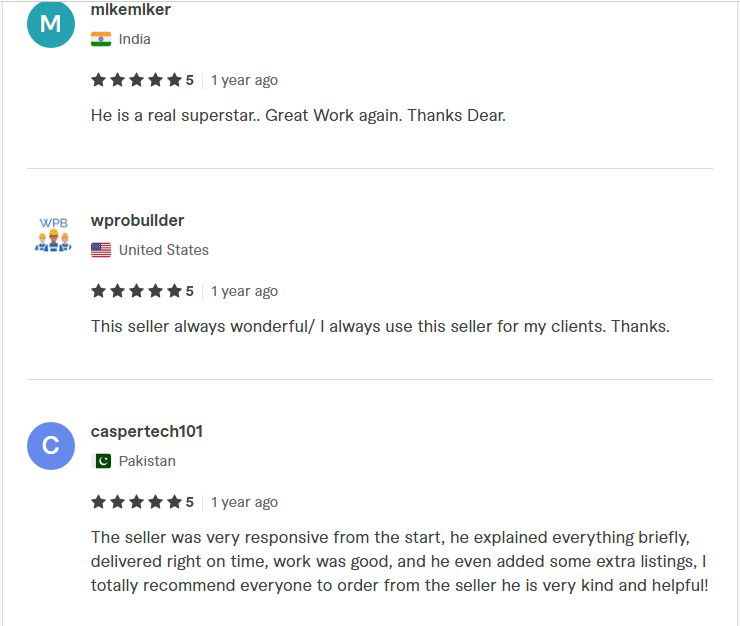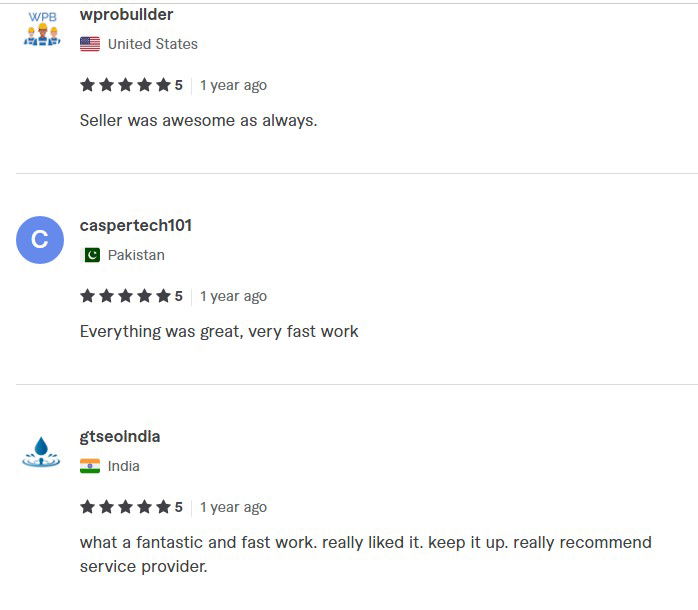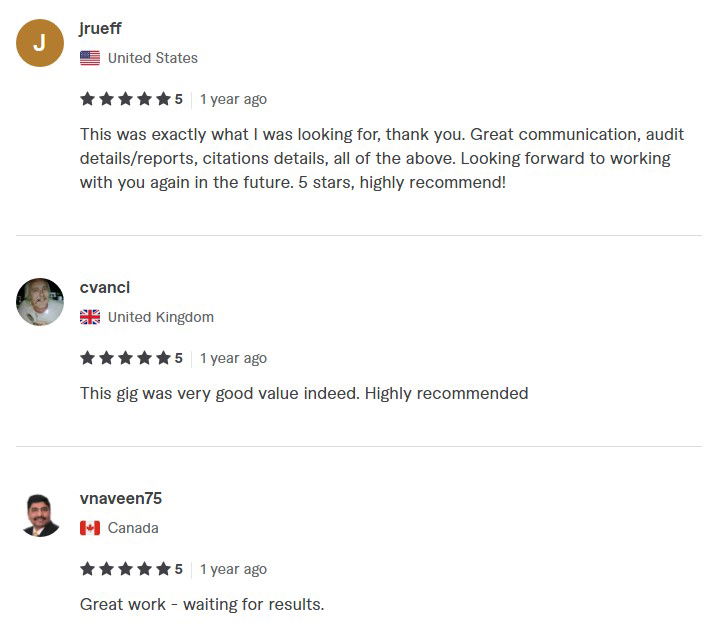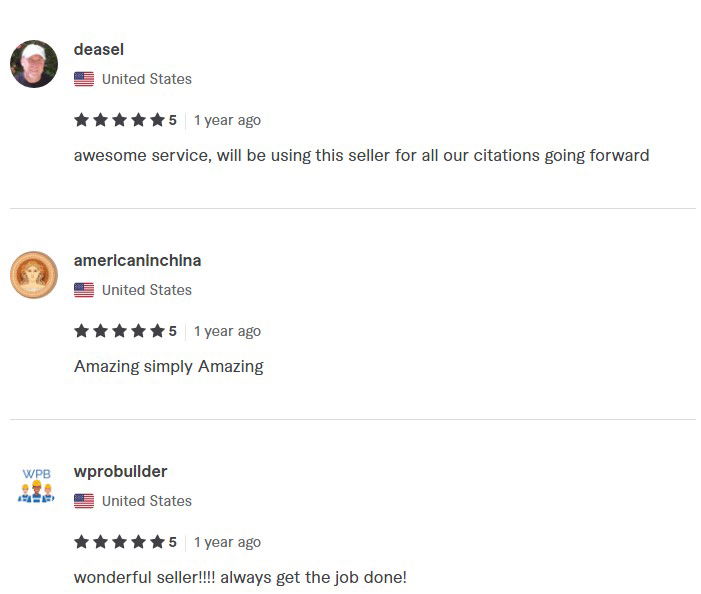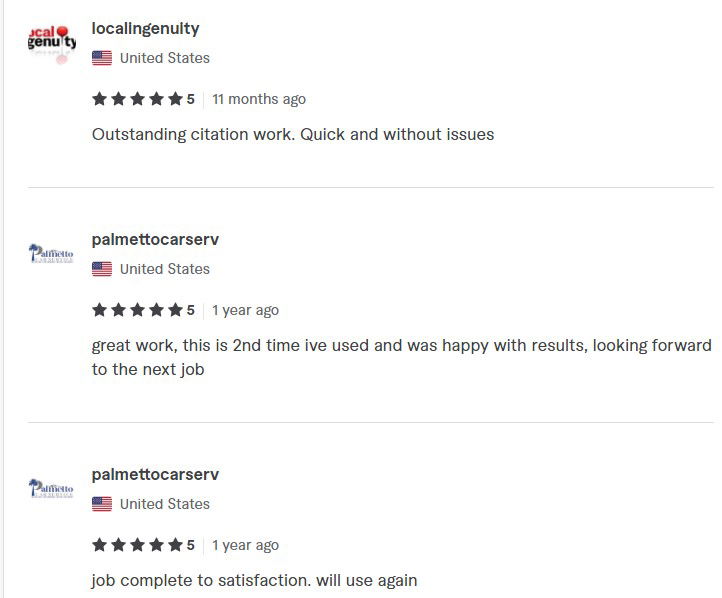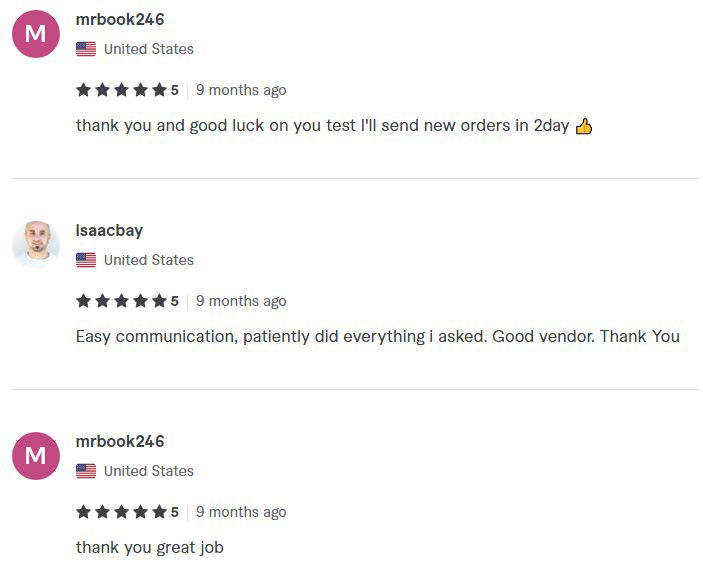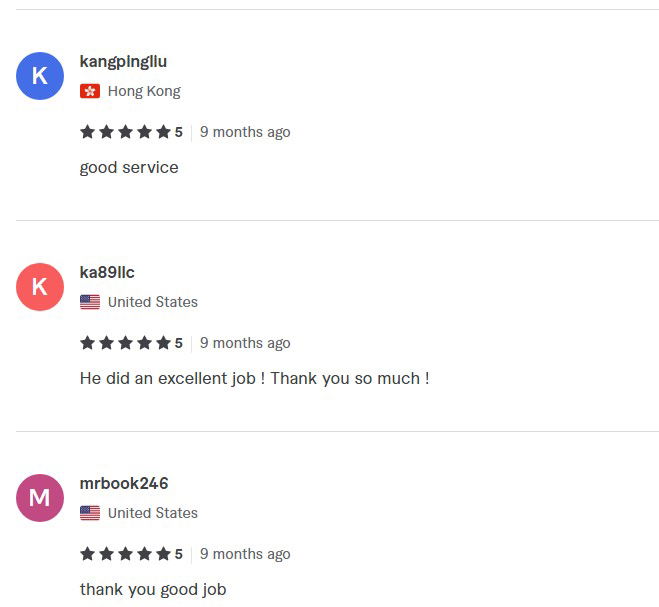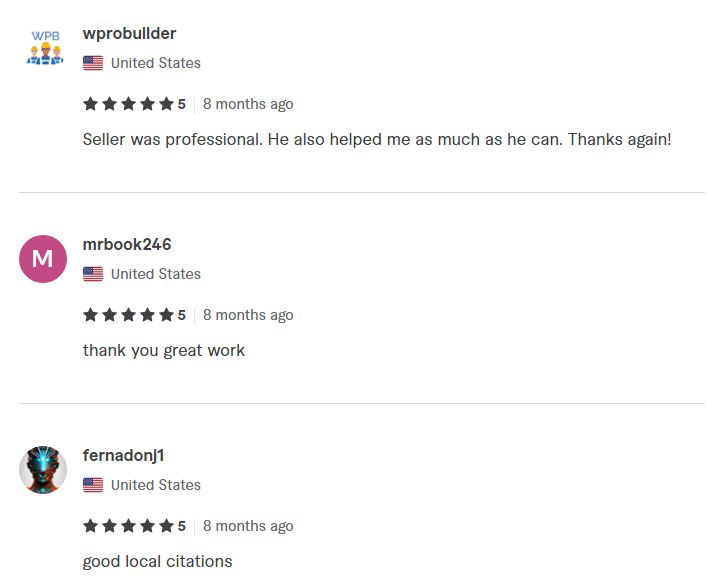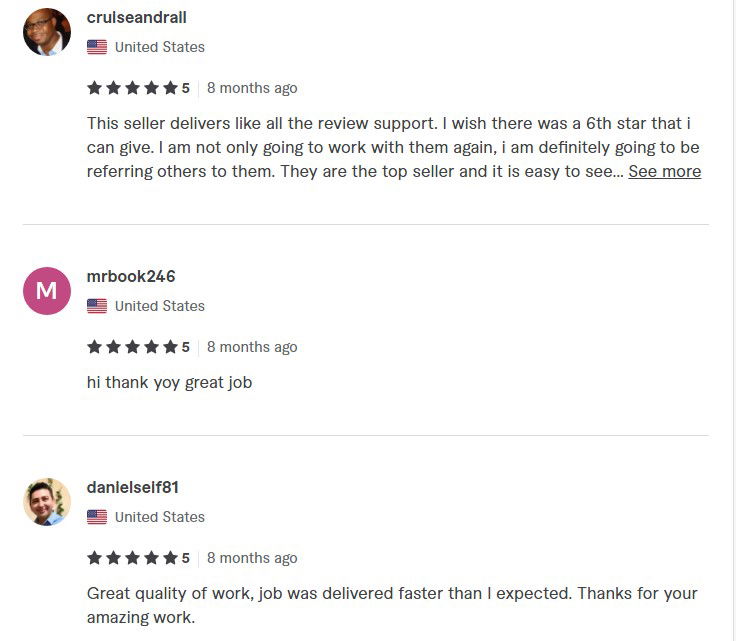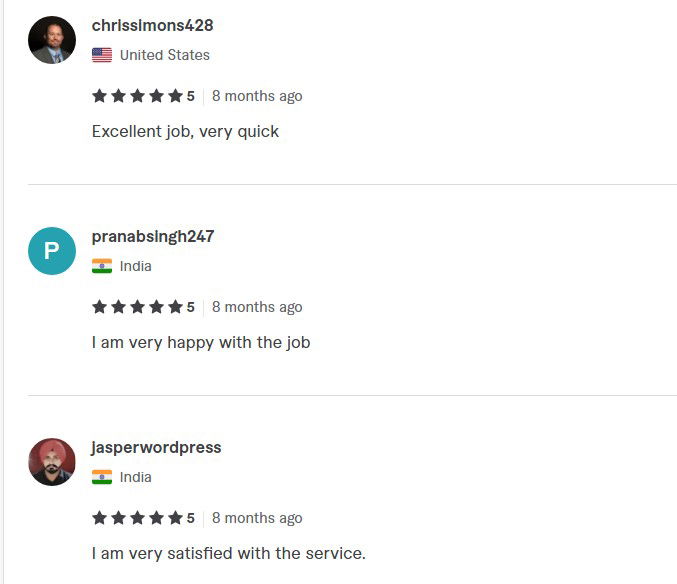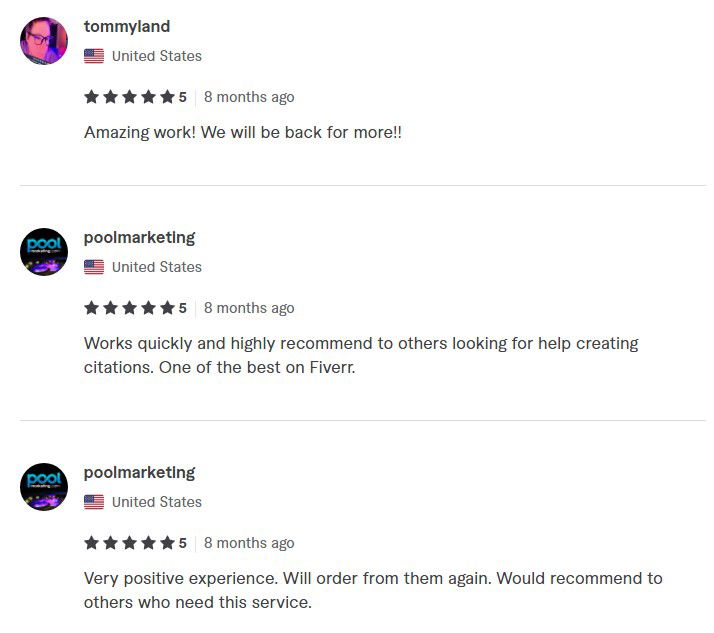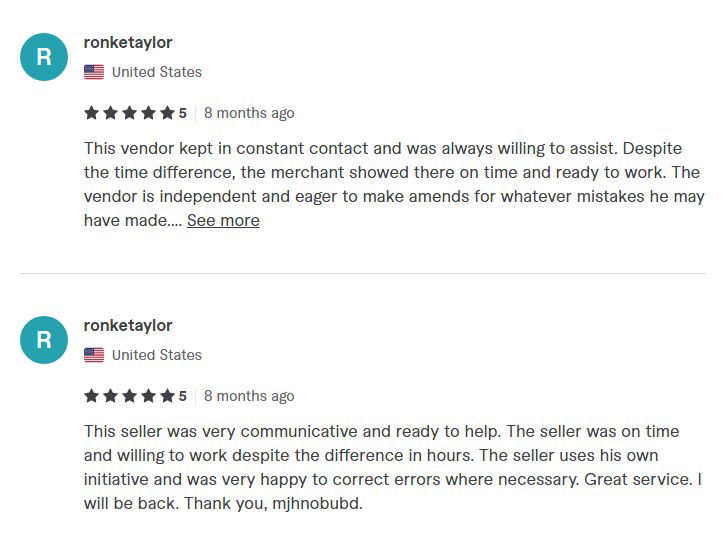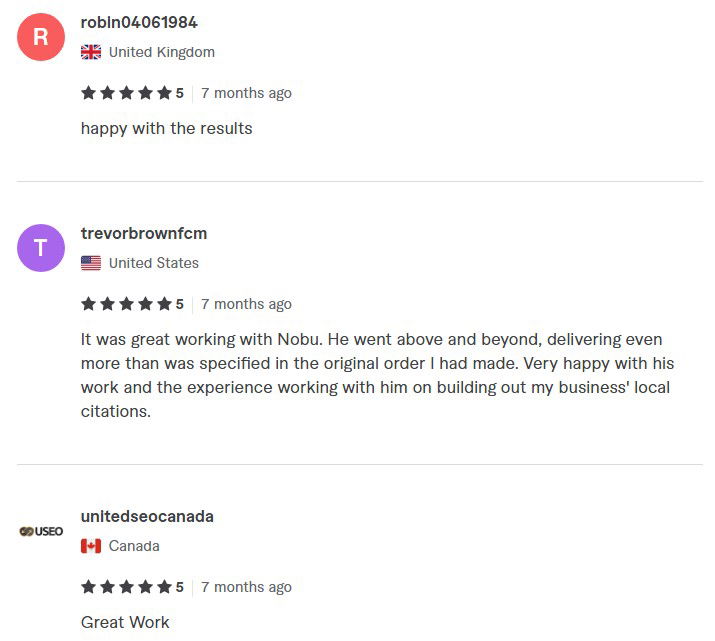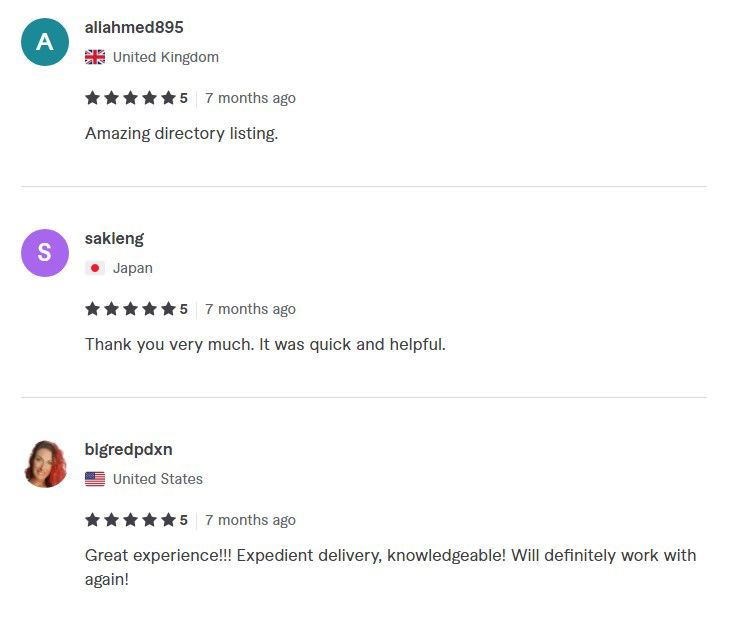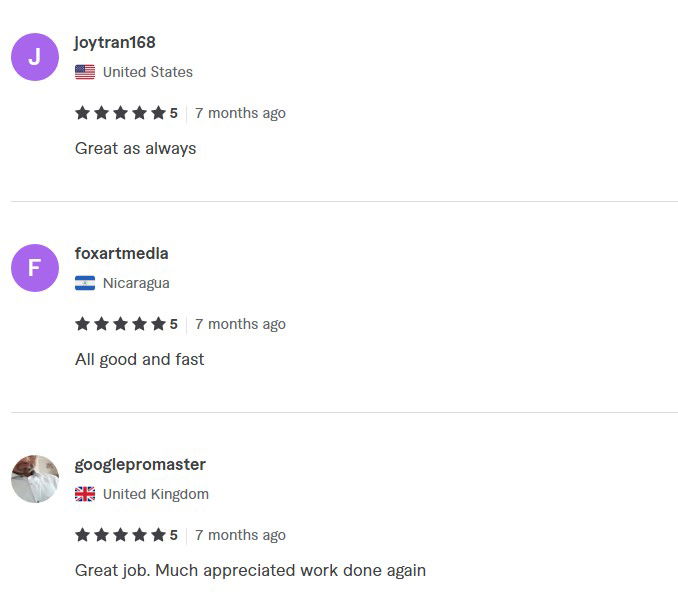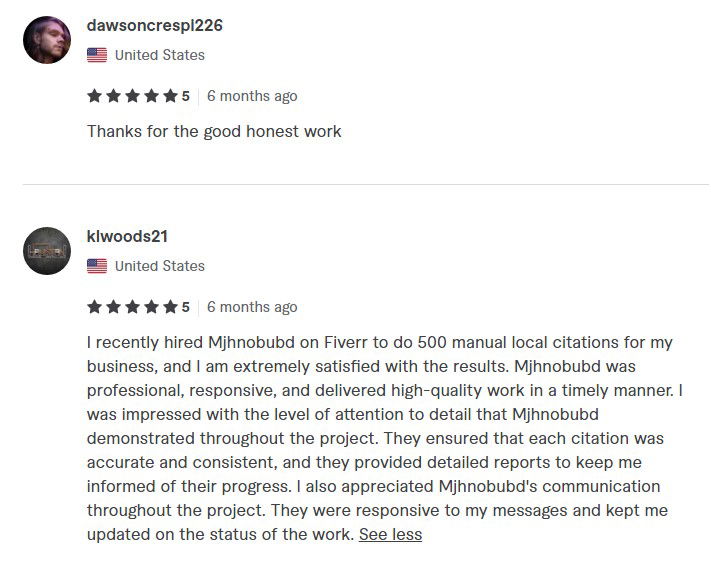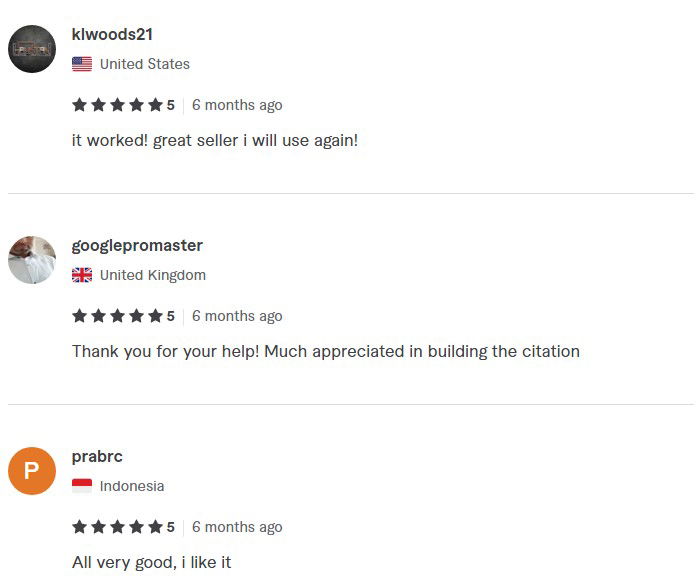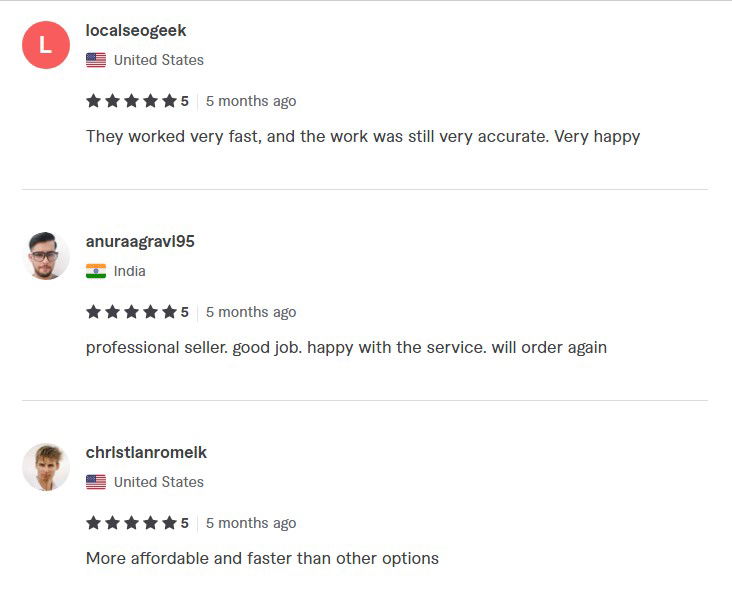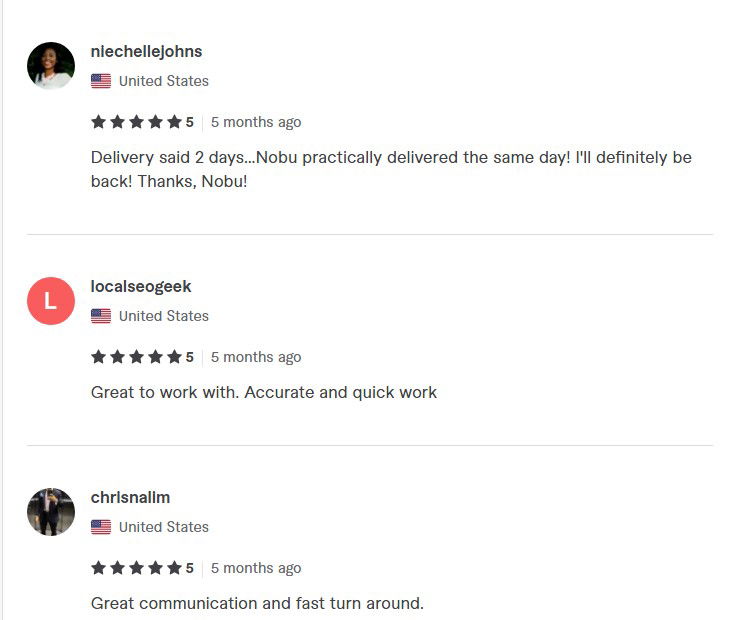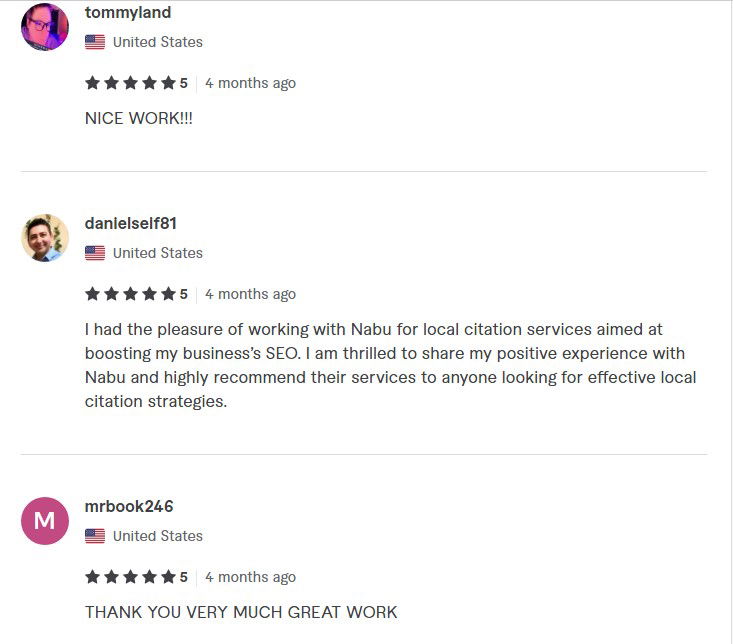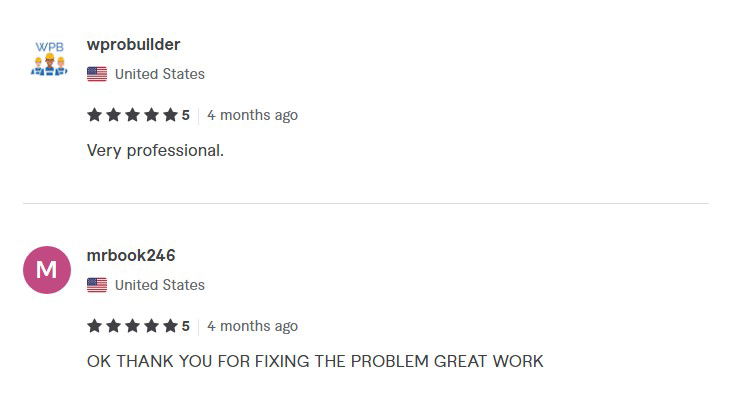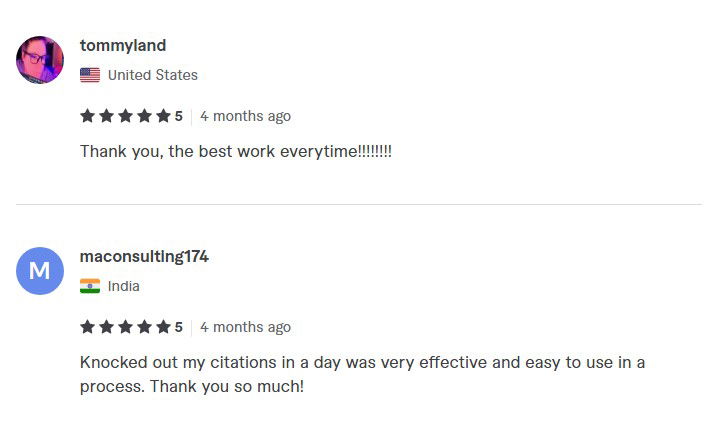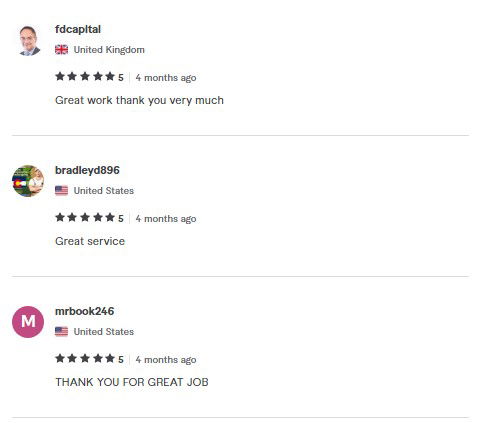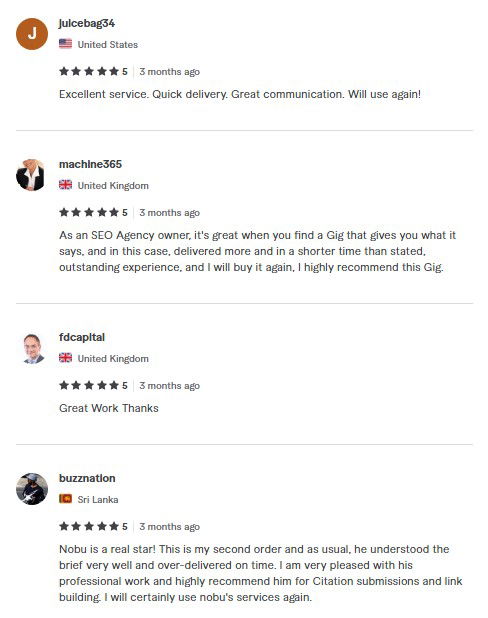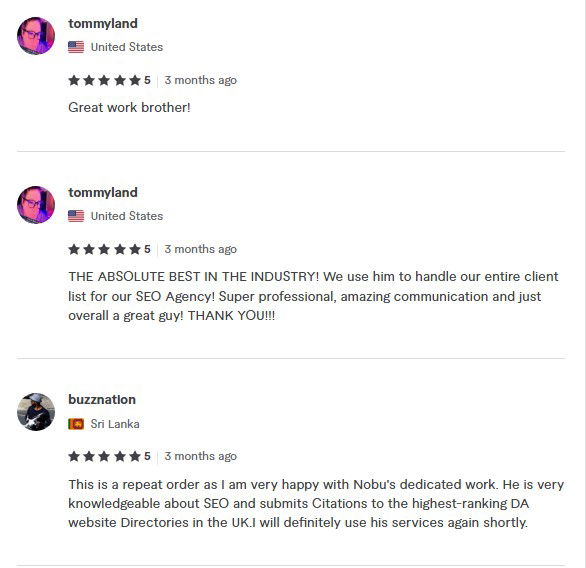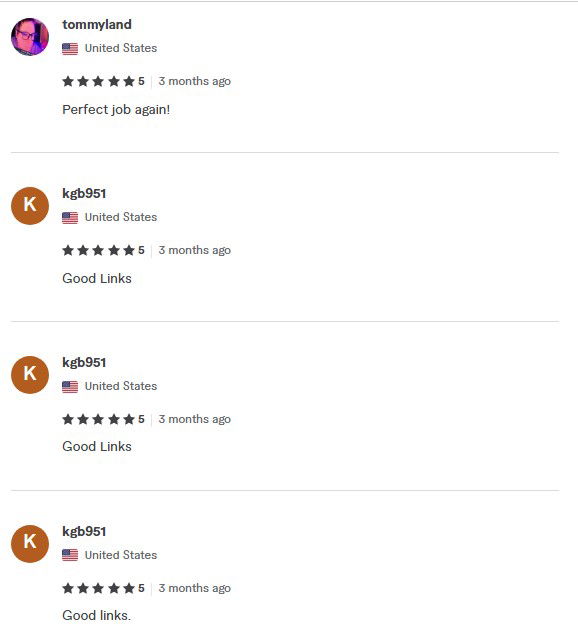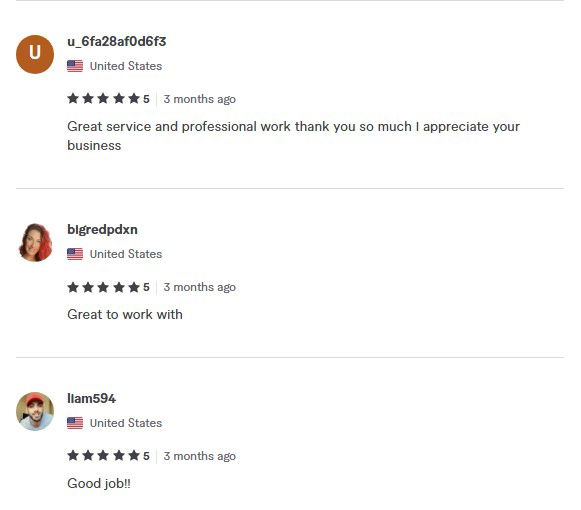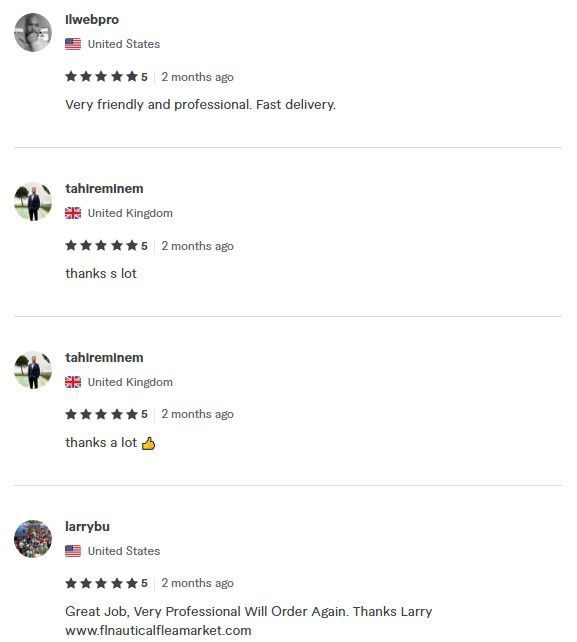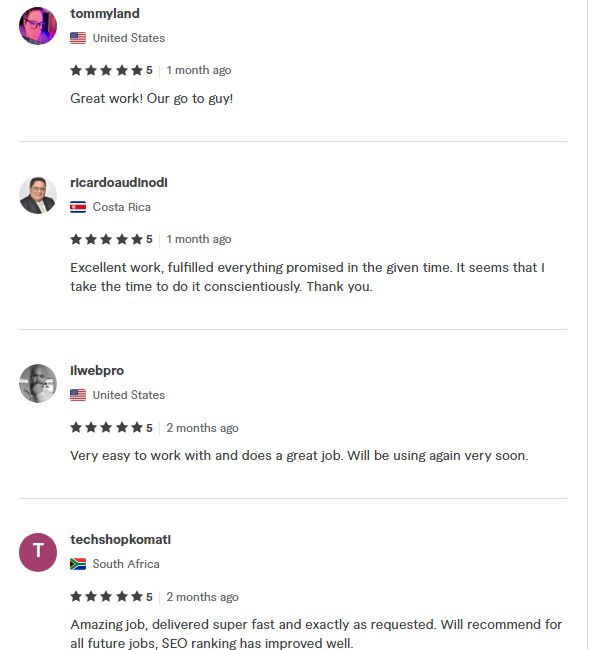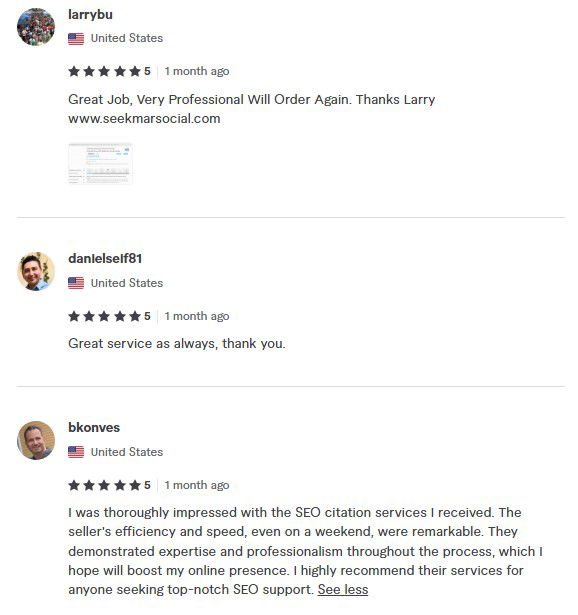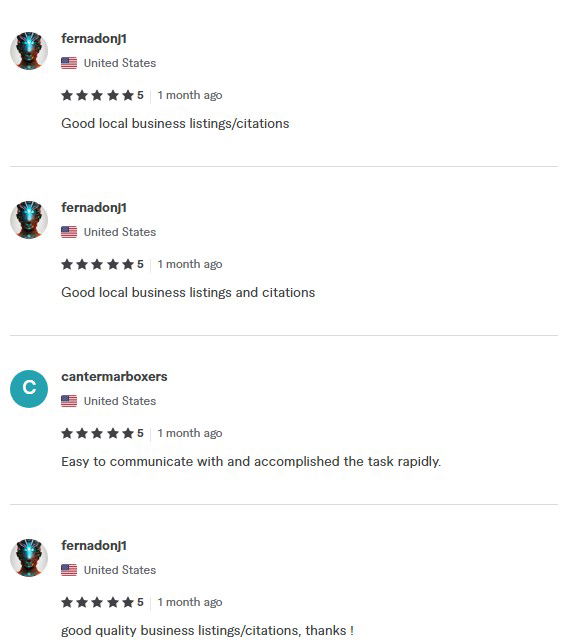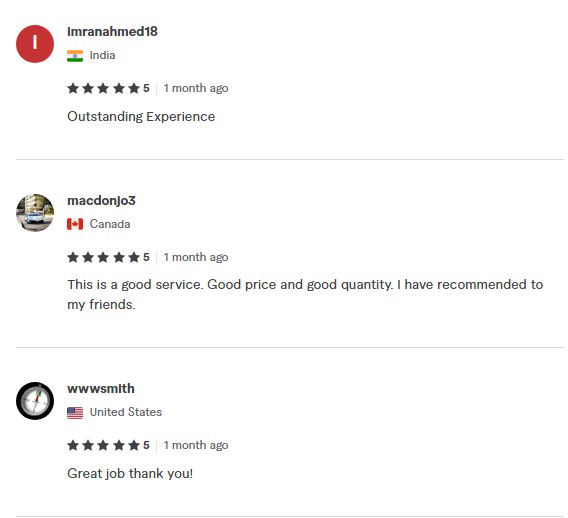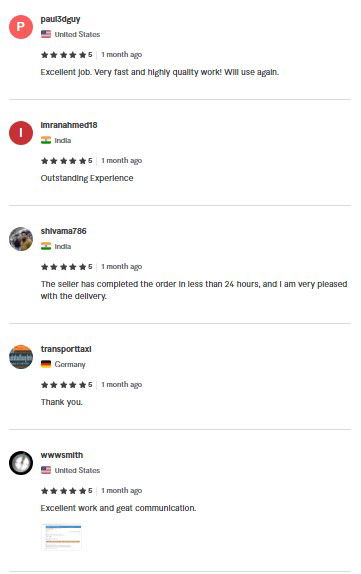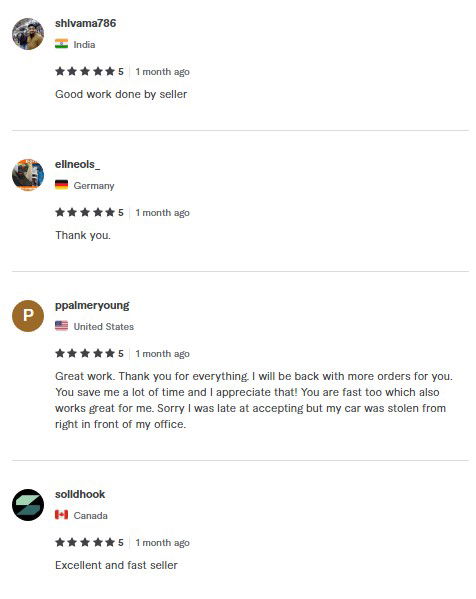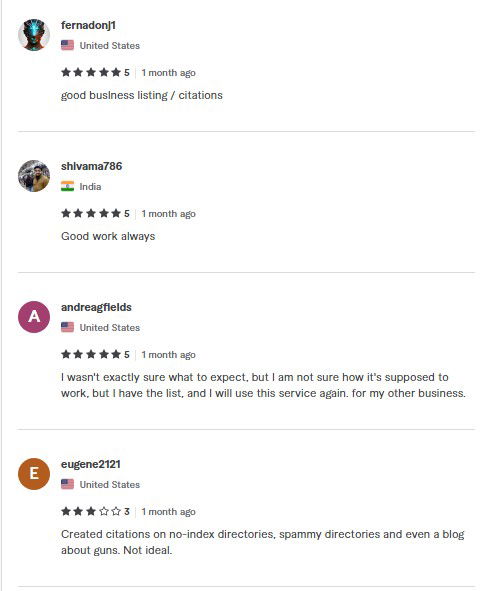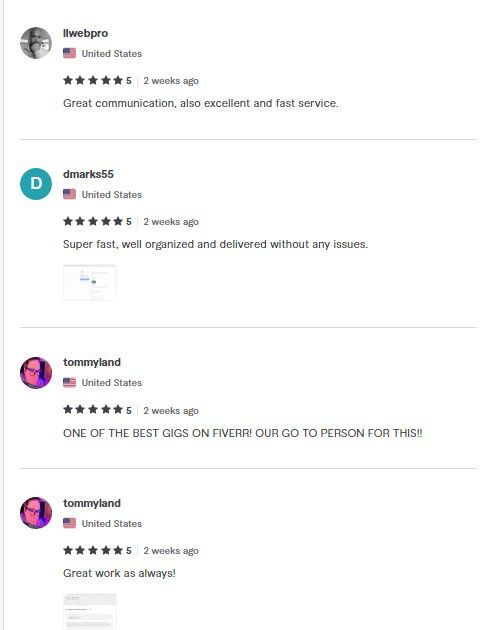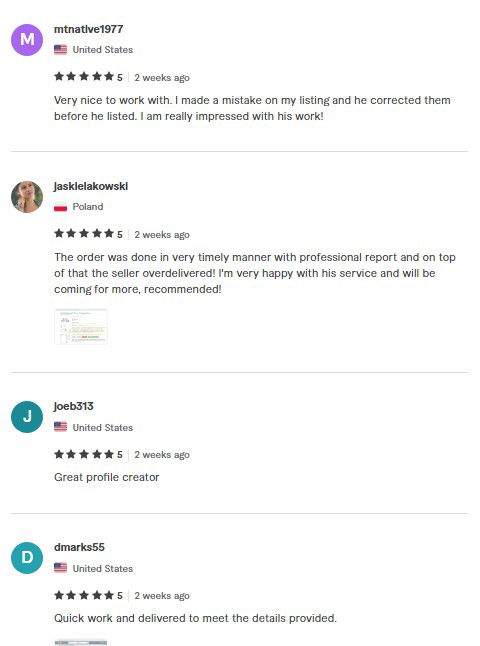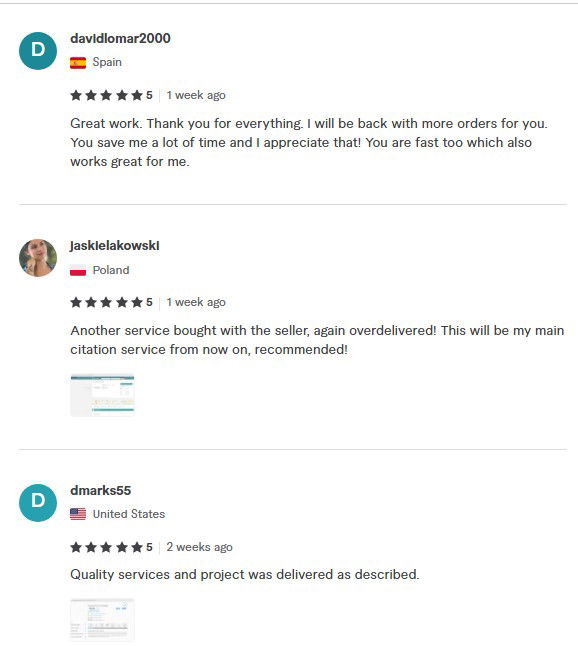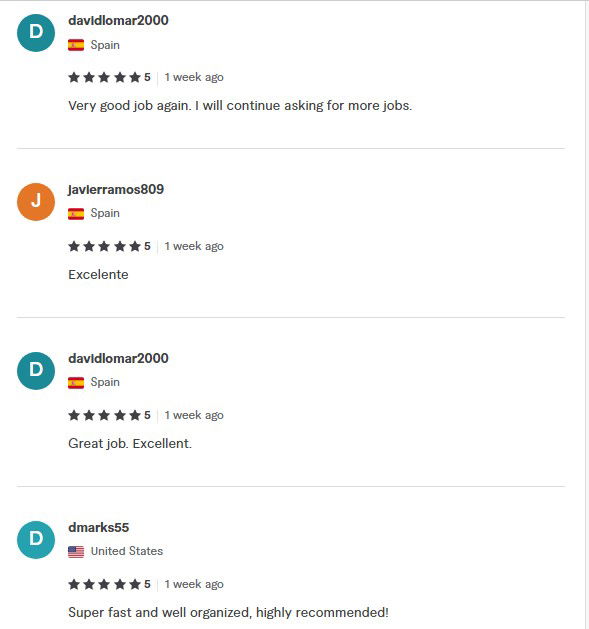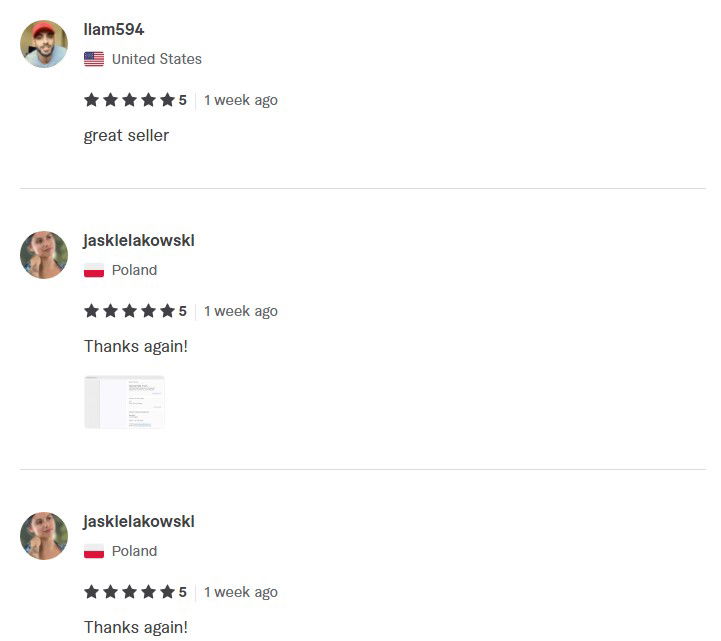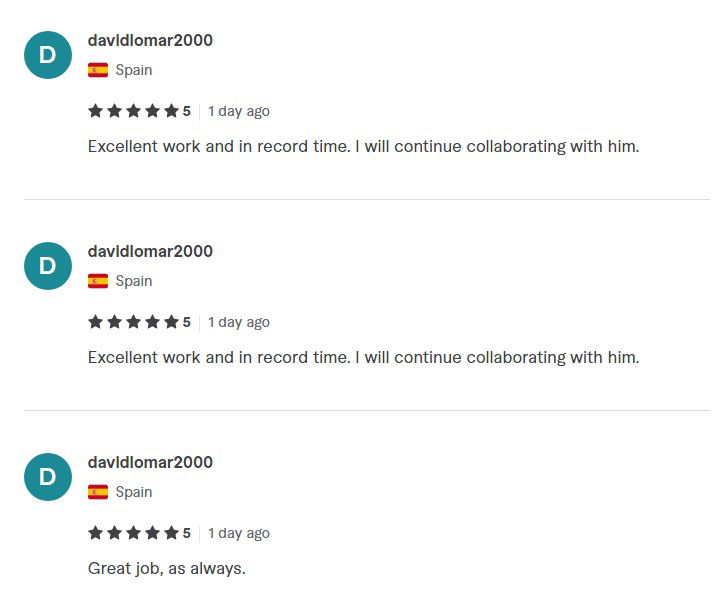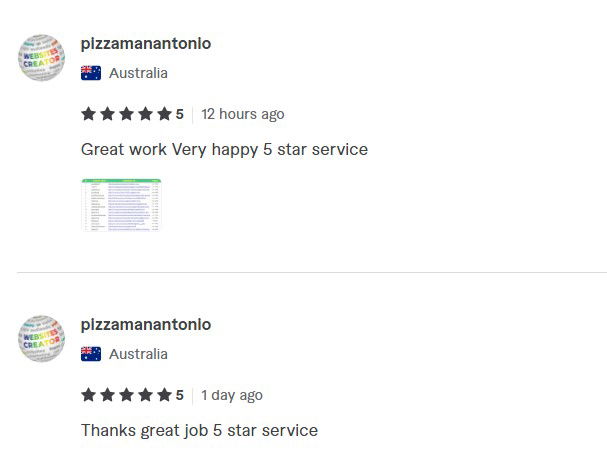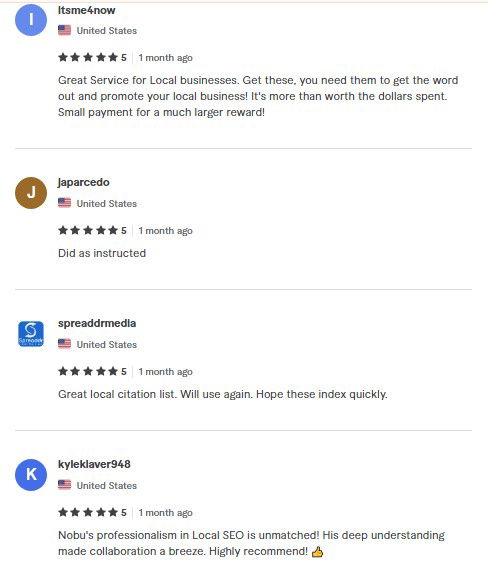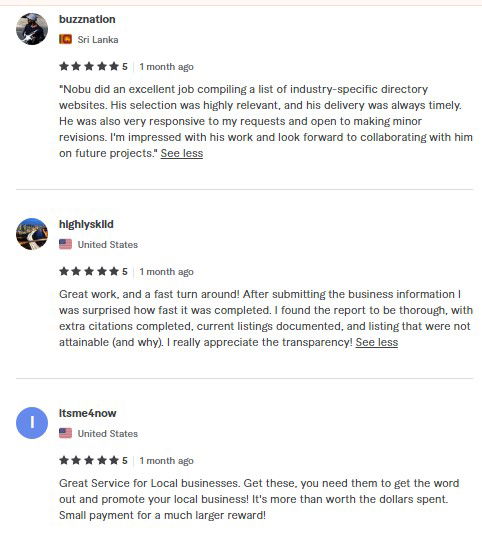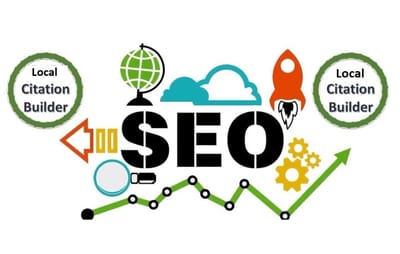Hello !
Welcome to my website.
About
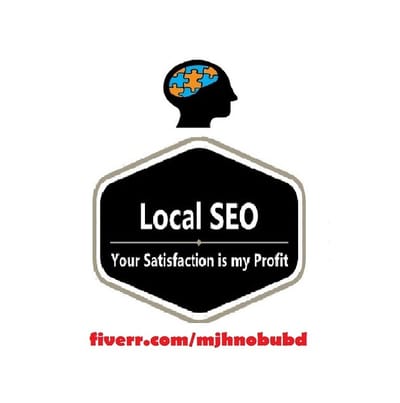
Hello! I am Nobu Specialist in Full Off-Page SEO on Local SEO with 6+ years of experience in the Digital Marketing industry. Experienced with White Hat SEO for worldwide and local SEO. I know all hiden tips tricks & procedure of this job. I can make Organic Traffic Growth, Local Listings, Link Building, Backlink Expert for any business to world-wide or any specific location or target customer. I can promote your business through online marketing especially with back-link building. I have a team for local seo, where are 7members working. To boost your business sales or increase traffic on your website, you can hire me or place an order. My Tactic Yext, MozLocal, Bright Local, White spark, Google Searching.
Until your Happiness i will Provide my Best. Thank you.
Our Service : Local SEO/Google My Business Maps Citations :
CARRER OBJECTIVES :To gain a challenging position which will express me as a creative and innovative personality in well reputed organization that will utilize my talent and provide me the opportunity to enhance my skill and professionalism.
M.B.A. (Masters of Business Administration)
OTHER ABILITIES :
LANGUAGE PROFICIENCY :
Having excellent command in both English & Bengali Language regarding speaking, writing, reading & Listening.
COMPUTER KNOWLEDGE :
INTEREST :
Interested in Reading Books, Watching T.V, Making Friends, Travelling etc.
Until your Happiness i will Provide my Best. Thank you.
Our Service : Local SEO/Google My Business Maps Citations :
- Local Citations/Directories/Listings
- Link Building
- Google Maps Point Citations
- Off Page Optimization/Profile Backlinks
- Backlinks
- Directory Submission
- Social Bookmarking
- Contextual dofollow SEO backlinks service
- Increase domain authority moz da up to 50
CARRER OBJECTIVES :To gain a challenging position which will express me as a creative and innovative personality in well reputed organization that will utilize my talent and provide me the opportunity to enhance my skill and professionalism.
| Education Qualifications : |
M.B.A. (Masters of Business Administration)
OTHER ABILITIES :
- Hard working, dynamic and able to work on under pressure.
- Having strong desire to succeed through honesty.
- Ambitious & highly committed in completing any given project.
- Quick learner, self-motivated, Honest and transparent.
- Active, dynamic team member, Self-confident and positive minded.
- Flexible & adaptable to changing organizational environment.
LANGUAGE PROFICIENCY :
Having excellent command in both English & Bengali Language regarding speaking, writing, reading & Listening.
COMPUTER KNOWLEDGE :
- OPERATING PACKAGE: Capable of Handing Computer Software Windows 2000, 2007, XP, Windows 8, Windows 10 etc.
- APPLICATION PACKAGE: MS Word, Excel, Power point, Adobe Photoshop and Multimedia.
- OTHERS: E-Mail, Internet browsing.
INTEREST :
Interested in Reading Books, Watching T.V, Making Friends, Travelling etc.
Services
I will do manual local citations for any country from yext, moz directories
Learn MoreI will do USA high quality 300 local citations
Learn MoreI will do yext, bright local 300 USA local citations and business directories
Learn MoreI will do manually 500 local citations for any country
Learn MoreI will do 9000 google maps citations for gmb ranking and local SEO
Learn MoreI will do manual 300 local citations australia, UK, canada, USA, india, spain
Learn MoreI will do 300 social media profile SEO backlinks for your website
Learn MoreI will do yext, brightlocal citations for 3 pack
Learn MoreI will provide off page SEO service with high quality citations and profile backlinks
Learn MoreI will do yext, moz, bright local 350 USA local seo local citation and business listing
Learn MoreI will do 200 local SEO, local citations, business listings and directory submission
I will do 15000 google map citations for gmb ranking and local SEO
Learn MorePortfolio
F.A.Q
What is local SEO and how is it different from traditional SEO?
Local SEO is an online optimizing process that helps a company to generate traffic based on the location or its area. The search makes you visible to the nearest consumers. Traditional SEO, however, is focused on generating as much links as you can through whichever means/channels without having to focus on the proximity of the customer.
What is a Local Citation?
A local citation is any mention of your business on the web; it is any combination of your company name, phone number, address, zip or postal code, and website address. Citations in SEO are a key factor in improving your local search results.
Local citations come in various forms, for example:
Company name.
Company name & phone number.
Company name, phone number, & address.
Company name, phone number, address, & website.
Company name, & website.
Company phone number.
And so on.
The term “citation” was coined by David Mihm in 2008 in his pivotal post, Local vs Traditional SEO: Why Citation Is the New Link.
A complete local citation should include the company name, address, and phone number, which is referred to as your “NAP”. A citation that does not include all three of these is sometimes referred to as a partial citation.
You’ll sometimes also hear people talk about a NAPW or a UNAP citation as well. The W refers to Website, and the U refers to URL. The website link you get from a citation offers you additional value, because it provides an extra data point that helps the search engines connect the citation to your business, so some people like to include it in the acronym.
IMPORTANT NOTE ABOUT LINKS:
A citation does not need to link back to your website to be valuable. The value in a citation is the mention of your business. Google identifies that your business was mentioned through the presence of your NAP info, and you get credit for this mention. The more mentions of your business out on the web, the more prominent your business appears to Google, and this will help with your local rankings. The actual links from most business directories are usually nofollowed anyway. This is not to say that links aren’t valuable. Links are valuable, and citations that include links are even better than citations that do not include links. The point to remember is that a citation does not need to have a link to be valuable to your local search efforts.
Local citations come in various forms, for example:
Company name.
Company name & phone number.
Company name, phone number, & address.
Company name, phone number, address, & website.
Company name, & website.
Company phone number.
And so on.
The term “citation” was coined by David Mihm in 2008 in his pivotal post, Local vs Traditional SEO: Why Citation Is the New Link.
A complete local citation should include the company name, address, and phone number, which is referred to as your “NAP”. A citation that does not include all three of these is sometimes referred to as a partial citation.
You’ll sometimes also hear people talk about a NAPW or a UNAP citation as well. The W refers to Website, and the U refers to URL. The website link you get from a citation offers you additional value, because it provides an extra data point that helps the search engines connect the citation to your business, so some people like to include it in the acronym.
IMPORTANT NOTE ABOUT LINKS:
A citation does not need to link back to your website to be valuable. The value in a citation is the mention of your business. Google identifies that your business was mentioned through the presence of your NAP info, and you get credit for this mention. The more mentions of your business out on the web, the more prominent your business appears to Google, and this will help with your local rankings. The actual links from most business directories are usually nofollowed anyway. This is not to say that links aren’t valuable. Links are valuable, and citations that include links are even better than citations that do not include links. The point to remember is that a citation does not need to have a link to be valuable to your local search efforts.
HOW DO LOCAL CITATIONS WORK?
Local citations often don’t include the link to your site. But, they are more important than you might think. Local citations help search engines display the most accurate information about your company, which helps customers get to you. That is why it is important to have the right information in the right place – adding an Australian company to a US business directory won’t benefit anyone, and it can mislead search engines.
What makes this piece of business information unique is that it comes directly from you. And you are the person that knows best all the details about your company. And for that reason, if you create Google My Business profile, it is basically like letting Google know about your business, and it now has to pay attention to it when local ranking.
But, this is not enough. Google will also look for your company in other well-known places such as Brown Book or Yellowpages, to check the information. If all of your information matches several different places, it will convince Google that your company is legit, and this will help your ranking position rank in local search. It will also help your map ranking rank in the map pack.
What makes this piece of business information unique is that it comes directly from you. And you are the person that knows best all the details about your company. And for that reason, if you create Google My Business profile, it is basically like letting Google know about your business, and it now has to pay attention to it when local ranking.
But, this is not enough. Google will also look for your company in other well-known places such as Brown Book or Yellowpages, to check the information. If all of your information matches several different places, it will convince Google that your company is legit, and this will help your ranking position rank in local search. It will also help your map ranking rank in the map pack.
DIFFERENT TYPES OF LOCAL CITATIONS
While local SEO citations can be found everywhere, there are a few common types, including:
STRUCTURED CITATIONS
Structured citations have your business data listed in a business listing directory. These include Yelp, Yellow Pages, but even Facebook, TripAdvisor, and similar. These have the complete info of your business, and often additional useful info like Google Maps location, about the company, and similar.
UNSTRUCTURED CITATIONS
Unstructured citations show all over the web, on places that are not specifically dedicated to local businesses. These include blog posts, social media posts, but also magazines and newspapers.
Not that local citations often don’t include links to the website, but they are still a huge ranking factor. All the other types of citations fall under either structured or unstructured local citations.
GENERAL BUSINESS DIRECTORIES
You want to register your business at a local business registry. Doing that will help you gain customer trust, as people often look a company’s background before choosing and committing. What’s great about these is that they are free, and for that reason, you should apply to all registrars in your city or state. You can also look for local business directory sites that are specific to your location.
NICHE DIRECTORIES
Depending on the area your business operates in, you should consider reaching out to popular blogs in the same industry, asking owners to talk about your site, or interview you.
Or, if for example, you have a restaurant, go ahead and create a page for it on TripAdvisor, or other sites that locals and tourists use when browsing for places to eat. The same goes for hotels, which you can list on Booking. All of this will improve the visibility of your business.
OTHER PLACES ACROSS THE WEB
Companies are mentioned on the Internet all the time, whether in news, government publications, social media or similar places across the web. Those mentions can also be considered as citations.
While most of the time you can’t directly impact when your company information gets mentioned, you can make sure it is accurate at least on the places where it matters the most, and we will explain that in the next section. After all, people usually use information from credible directories when citing in news/social media.
HOW TO BUILD LOCAL CITATIONS THE RIGHT WAY?
The first thing you need to do is to make sure your company is present on all the biggest websites that are linked to your business. You want to have accurate information displayed, including your company name, phone, and address. It’s important to have precise information as search engine rankings nowadays are very smart.
Second, you need to make sure that there is only ONE listing of your business per site, as you don’t want to create confusion. Look for all variations of your business, and remove any duplicates.
If you are wondering where to start – Google and Bing obviously. But also InfoGroup, Factual, Localeze. Next, you need to go to your Facebook Business page, Yelp, TripAdvisor, Yellowpages, and all the niche and local directories (your city site, or the site of your industry). It’s a big plus if you also go through all the local business listings, and check and clean the information.
One last tip – use your business email, not personal. It will stop the spam, and protect you. Also, make sure you are putting proper links to your website if you are using multiple locations.
HERE IS A QUICK CHECKLIST FOR CITATION BUILDING:
Consistent NAP (Business Name, Address, Phone). Must be the same on all listing, that’s what we call NAP Consistency.
Proper business categories – Categories should describe what your business does and also be consistent across citations. (Example Law for Lawyer, Dental for Dentists, and Plumbing for Plumbers, etc.)
Hours of operation – So potential clients know when to contact you.
Unique business description – Describing your business does to optimize your listing. Also, you can add your business logo, images of your staff/team, your business location to make your business look better, and to gain more trust.
Links to your social accounts – Social profiles like (Facebook, Twitter, Linkedin Company Profile, etc.
Verify and claim your listing – This is very important as verified listings have more authority. Also, your company will look better in the eyes of potential clients/customers.
Links to your social accounts – Social profiles like (Facebook, Twitter, Linkedin Company Profile, etc.
Verify and claim your listing – This is very important as verified listings have more authority. Also, your company will look better in the eyes of potential clients/customers.
HOW TO FIND LOCAL CITATION SOURCES AND LISTINGS?
The best idea is to select your biggest and most established local competitor. Google them, find their address. Then start googling that address, and see where it shows, and note those directories. You can do the same for their business email in combination with address, company name, etc.
Top 50 Local Citation Sites List:
If you do that for the number two and number three competitors, you will get the idea of where they rank, and what you need to do next – list on the same places. Also, you can use SEO tools like Ahrefs to check their backlinks and see what referring domains they have.
Just make sure you are googling your local competitors, not worldwide – every country and town has their own directories and systems.
You can also try to enter “business listing/directory” combined with the name of your city. Or enter the specific business you are in, for example, “plumbers New York.”
There are also websites such as WhiteSpark and BrightLocal that can aid you in finding and also creating citations, as well as checking NAP. We recommend you visit those pages, they will help you a lot. It is very important that your local citations have consistency.
STRUCTURED CITATIONS
Structured citations have your business data listed in a business listing directory. These include Yelp, Yellow Pages, but even Facebook, TripAdvisor, and similar. These have the complete info of your business, and often additional useful info like Google Maps location, about the company, and similar.
UNSTRUCTURED CITATIONS
Unstructured citations show all over the web, on places that are not specifically dedicated to local businesses. These include blog posts, social media posts, but also magazines and newspapers.
Not that local citations often don’t include links to the website, but they are still a huge ranking factor. All the other types of citations fall under either structured or unstructured local citations.
GENERAL BUSINESS DIRECTORIES
You want to register your business at a local business registry. Doing that will help you gain customer trust, as people often look a company’s background before choosing and committing. What’s great about these is that they are free, and for that reason, you should apply to all registrars in your city or state. You can also look for local business directory sites that are specific to your location.
NICHE DIRECTORIES
Depending on the area your business operates in, you should consider reaching out to popular blogs in the same industry, asking owners to talk about your site, or interview you.
Or, if for example, you have a restaurant, go ahead and create a page for it on TripAdvisor, or other sites that locals and tourists use when browsing for places to eat. The same goes for hotels, which you can list on Booking. All of this will improve the visibility of your business.
OTHER PLACES ACROSS THE WEB
Companies are mentioned on the Internet all the time, whether in news, government publications, social media or similar places across the web. Those mentions can also be considered as citations.
While most of the time you can’t directly impact when your company information gets mentioned, you can make sure it is accurate at least on the places where it matters the most, and we will explain that in the next section. After all, people usually use information from credible directories when citing in news/social media.
HOW TO BUILD LOCAL CITATIONS THE RIGHT WAY?
The first thing you need to do is to make sure your company is present on all the biggest websites that are linked to your business. You want to have accurate information displayed, including your company name, phone, and address. It’s important to have precise information as search engine rankings nowadays are very smart.
Second, you need to make sure that there is only ONE listing of your business per site, as you don’t want to create confusion. Look for all variations of your business, and remove any duplicates.
If you are wondering where to start – Google and Bing obviously. But also InfoGroup, Factual, Localeze. Next, you need to go to your Facebook Business page, Yelp, TripAdvisor, Yellowpages, and all the niche and local directories (your city site, or the site of your industry). It’s a big plus if you also go through all the local business listings, and check and clean the information.
One last tip – use your business email, not personal. It will stop the spam, and protect you. Also, make sure you are putting proper links to your website if you are using multiple locations.
HERE IS A QUICK CHECKLIST FOR CITATION BUILDING:
Consistent NAP (Business Name, Address, Phone). Must be the same on all listing, that’s what we call NAP Consistency.
Proper business categories – Categories should describe what your business does and also be consistent across citations. (Example Law for Lawyer, Dental for Dentists, and Plumbing for Plumbers, etc.)
Hours of operation – So potential clients know when to contact you.
Unique business description – Describing your business does to optimize your listing. Also, you can add your business logo, images of your staff/team, your business location to make your business look better, and to gain more trust.
Links to your social accounts – Social profiles like (Facebook, Twitter, Linkedin Company Profile, etc.
Verify and claim your listing – This is very important as verified listings have more authority. Also, your company will look better in the eyes of potential clients/customers.
Links to your social accounts – Social profiles like (Facebook, Twitter, Linkedin Company Profile, etc.
Verify and claim your listing – This is very important as verified listings have more authority. Also, your company will look better in the eyes of potential clients/customers.
HOW TO FIND LOCAL CITATION SOURCES AND LISTINGS?
The best idea is to select your biggest and most established local competitor. Google them, find their address. Then start googling that address, and see where it shows, and note those directories. You can do the same for their business email in combination with address, company name, etc.
Top 50 Local Citation Sites List:
If you do that for the number two and number three competitors, you will get the idea of where they rank, and what you need to do next – list on the same places. Also, you can use SEO tools like Ahrefs to check their backlinks and see what referring domains they have.
Just make sure you are googling your local competitors, not worldwide – every country and town has their own directories and systems.
You can also try to enter “business listing/directory” combined with the name of your city. Or enter the specific business you are in, for example, “plumbers New York.”
There are also websites such as WhiteSpark and BrightLocal that can aid you in finding and also creating citations, as well as checking NAP. We recommend you visit those pages, they will help you a lot. It is very important that your local citations have consistency.
What Types of Businesses Can Use Local SEO?
There are no limits to who can use local SEO. In fact, some of the most ideal businesses that can make use of Local SEO include but aren’t limited to the following.
Businesses which provide services?
- Real estate
- Health And Beauty
- Home and Garden
- Remodeling And Constructions
- Automative
- E-commerce
- Health
- Digital Marketing Agency
- Dentist
- Urgent care clinics
- Law Offices
- Restaurants & Bars
- Plumbers
- Vets
- Pet services
- Etc.
How Do You Compete In Cities and Towns Outside Of Your Physical Location?
When you set up an online shop, business, or E-commerce shops you will get the perfect opportunity of competing with cities outside your location. However, your success will rely more on how best you set up a Search Engine Optimization system. Make sure you optimize for digital gadgets including phones, tablets, and laptops.
Why Citations Are Important for Local Search Rankings ?
Verification & Trust
Citations help search engines, like Google and Bing, verify that your business exists. When multiple credible sources have the same accurate information about your business, it signals to search engines that your business is legitimate.
Listing your business on the prominent national and local sites helps your business create authority, establish trust, and will improve your business’ ability to rank in local search results.
Prominence
Local ranking algorithms used by both Google and Bing factor in citations when it comes to local search rankings. In the latest Local Search Ranking Factors survey, local search experts rated citation related factors as making up approximately 13.31% of the Top 50 factors.
Local search ranking factors, 2017
The more places your business information appears online, the more prominent your business appears to Google. It makes sense. If the search engine algorithms see that your business is mentioned on hundreds of websites, compared to competition that is only listed on a few dozen, this can make you seem like a more popular business, and give you a boost in the rankings.
Not All Citations Are Created Equal
So what makes a citation great for a local business? There is huge variation in the value of different citations. A mention of your business’ name, address, and phone number on whitehouse.gov is worth far more than a mention of your business on some spammy web directory that was created solely for low quality link building.
Since citations vary in their value, we’ve broken down our top recommended citation and data sources into different classifications by rank of importance, they are: Core Search Engines, Primary Sources, Tier 1, Tier 2 , Tier 3, and Tier 4. Below is a description of each category and some examples for businesses in the USA:
Core Search Engines
These search engines are receivers of business listing data, not distributors.
Google
Bing
Apple Maps
Primary Data Sources
These are the data aggregators that aggregate and validate data from a number of sources (government, telcos, utilities, web research, etc), and then distribute this business listing data to hundreds of other sites.
InfoGroup
Acxiom
Localeze
Factual
Tier 1
These sites are prominent on Google and are frequently used by people searching for businesses. In addition to generic sites that are used nationally, this tier also includes city/state and industry/niche citations that add significant value to your citation profile.
Generic
Yelp
Facebook
Yellowpages
BBB
etc.
Hyper-Local & Niche
Lawyers.com
Avvo
City of Chicago.org
Denver.com
etc.
Tier 2
These are business listing sites that have some prominence on Google, decent domain authority, but may be lesser known.
Yellowbook
Merchant Circle
HotFrog
etc.
Tier 3
Even lesser known and lesser frequented business listing sites.
Yellowise
My Local Services
Local Database
etc.
Tier 4
Sites with low domain authority that you’ve probably never heard of. Examples:
IGotBiz.com
UnitedStatesSeek.com
etc.
There are many factors that determine citation quality. For further advice on sorting the gold from the sand, take a look at this post on determining citation quality.
Citations help search engines, like Google and Bing, verify that your business exists. When multiple credible sources have the same accurate information about your business, it signals to search engines that your business is legitimate.
Listing your business on the prominent national and local sites helps your business create authority, establish trust, and will improve your business’ ability to rank in local search results.
Prominence
Local ranking algorithms used by both Google and Bing factor in citations when it comes to local search rankings. In the latest Local Search Ranking Factors survey, local search experts rated citation related factors as making up approximately 13.31% of the Top 50 factors.
Local search ranking factors, 2017
The more places your business information appears online, the more prominent your business appears to Google. It makes sense. If the search engine algorithms see that your business is mentioned on hundreds of websites, compared to competition that is only listed on a few dozen, this can make you seem like a more popular business, and give you a boost in the rankings.
Not All Citations Are Created Equal
So what makes a citation great for a local business? There is huge variation in the value of different citations. A mention of your business’ name, address, and phone number on whitehouse.gov is worth far more than a mention of your business on some spammy web directory that was created solely for low quality link building.
Since citations vary in their value, we’ve broken down our top recommended citation and data sources into different classifications by rank of importance, they are: Core Search Engines, Primary Sources, Tier 1, Tier 2 , Tier 3, and Tier 4. Below is a description of each category and some examples for businesses in the USA:
Core Search Engines
These search engines are receivers of business listing data, not distributors.
Bing
Apple Maps
Primary Data Sources
These are the data aggregators that aggregate and validate data from a number of sources (government, telcos, utilities, web research, etc), and then distribute this business listing data to hundreds of other sites.
InfoGroup
Acxiom
Localeze
Factual
Tier 1
These sites are prominent on Google and are frequently used by people searching for businesses. In addition to generic sites that are used nationally, this tier also includes city/state and industry/niche citations that add significant value to your citation profile.
Generic
Yelp
Yellowpages
BBB
etc.
Hyper-Local & Niche
Lawyers.com
Avvo
City of Chicago.org
Denver.com
etc.
Tier 2
These are business listing sites that have some prominence on Google, decent domain authority, but may be lesser known.
Yellowbook
Merchant Circle
HotFrog
etc.
Tier 3
Even lesser known and lesser frequented business listing sites.
Yellowise
My Local Services
Local Database
etc.
Tier 4
Sites with low domain authority that you’ve probably never heard of. Examples:
IGotBiz.com
UnitedStatesSeek.com
etc.
There are many factors that determine citation quality. For further advice on sorting the gold from the sand, take a look at this post on determining citation quality.
How Does SEO Improve My Business?
SEO accomplishments are extremely remarkable. They include helping your company to rank, improve its online visibility, boost its click through rate, take on small stores, dominate locally and internationally, and to fend off the fierce market competition. SEO is the very best pillar of success in this online trading age.
If My Site Ranks Well Now, Should I Still Invest in SEO?
Yes. SEO is a process and Google algorithms are frequently changing. It is therefore very important that you constantly update your SEO techniques to match what Google wants. This will help you to rank. You should also track your progress; improve every possible area, before you can find of the fierce competition.
What is Google My Business (GMB)?
Google My Business (GMB) is a local SEO technique that helps you to create and update your main Business Profile. So that you can easily stand out among the rest. It is like an “online directory of businesses” where you can upload your business profile so that you bring more customers your way. Google verifies your business before it is listed in the GMB listings.
How Can My Business Show Up on Google Maps?
When updating your business for the Google My Business (GMB) listing, you will have the opportunity to feed the right information in your business profile page once it has been verified to be legitimate. At this point you will also have the opportunity to add your location on Google maps that consequently allows your business to show on Google Maps.
What is NAP and Why is it Important?
NAP stands for Name-Address-Phone Number (NAP). NAP is very important for any business that intends to rank well in any local organic search engine results. It is very important as it uses the present information for geo-targeted searches in order to boost the local search rankings and also business listing too.
How Important is Page Load Speed?
If an online visitor does a search and chooses your website, the loading speed that Google recommends is under 1000th of a second. This is important as your visitor doesn’t get bored waiting for your page to load as they will quickly turn to a competitors page. A fast loading speed will keep them glued to your page and quickly boost your conversion rates too.
When will I see the results?
This is a hazy question with no real answer. It depends on what else you've done, how hard the keyword is, how much competition there is, and a lot of other factors. If you buy this expecting it to rank you on its own, you will be disappointed, and you should look for a different service.
Citation Consistency
If you’ve read any introductory posts about local SEO, you’ve likely heard about how important citation consistency is. Making sure your listings have the correct name, address, and phone number on the most important sites in the local search ecosystem IS important. You want to make sure that you have one, and only one, accurate and complete listing on each of the most important sites.
With that said, some people worry about citation consistency more than they need to. When it comes to your local rankings and the impact incorrect citations can have, you really need to perfect your citation profile on the Core Search Engines, Primary Data Sources, and Tier 1 sites. This means making sure that you have searched for all NAP variations, all duplicates have been removed, all inconsistent citations have been updated, and you have one and only one, perfectly accurate and complete citation on each of these data sources and websites.
Your next priority would be to audit and cleanup your listings on the Tier 2 sites. There is value in getting these listings sorted as well.
If you want to keep going into the Tier 3 and Tier 4, enjoy yourself. It’s not going to hurt, but it’s also not going to make or break your SEO. A few incorrect listings on some of these less important sites are no big deal.
Another important element to remember is that Google and other Search Engines are intelligent enough to normalize business data for variations/abbreviations, so if it’s not identical to the letter or format, you don’t need to stress about it.
Oh, and if you’d rather not do all this work yourself, we would love to help you with citation audit and cleanup.
How to Build Citations for Local Businesses
Building citations is a time consuming process – it’s important to invest the time to do it right, or outsource the work to a trust and credible service provider.
Tips for building citations:
To create listings you will need an email address – we strongly recommend that you use a business email that is associated with your company domain and not a generic Gmail or Yahoo address. Listing submissions will be more trusted and more likely to go live when you use a domain-based email.
Your Name, Address, and Phone Number (NAP) should be the same on every site. Consistency is important, but, don’t worry about minor formatting differences that you’ll see on different sites. Again, check out our guide to acceptable variations.
Category Selection – Try to keep your categories consistent on the sites and choose the category that best describes what your business does.
Add as much detail as possible – Add photos, your logo, a full business description, your operating hours, links to your social accounts, and so on.
Claim your listings – most sites will require you to verify your listing – this can be via email or for the bigger sites like Google My Business, Bing, Apple Maps and so on, through phone verification. The company will call your business and have you enter a pin number or give you a pin number to enter to claim your listing. This is very important, it’s another trust signal and verified listings have more authority.
Get started by gathering all of your business information, feel free to use our Citation Info and Tracking Spreadsheet, to stay organized and have all your information in one location.
For even more tips, see Phil Rozek’s post on Citation Building Best Practices. It’s a bit dated (2013) but most of these tips are still applicable.
Strategies For Finding Citations Sources
Now that you know what citations are and why they are important for local businesses, how do you go about finding local citations for your business?
We have good news, Whitespark has already done the legwork for you! We have been putting together citation resources and lists for years. Here are our recommendations:
#1. Start with Whitespark’s List of Top Citation Sources by Country (USA, Canada, United Kingdom, and Australia). These lists were carefully curated by Nyagoslav Zhekov, one of the foremost experts in the world on citations. You can learn more about his methodology for determining the most valuable citations here.
You can reference the lists on our site, or download the information in a spreadsheet. Work your way through all of these listings based on your country. (Note, business directories are more plentiful in the USA so this is why you are seeing a Top 50 list).
#2. Now look for citations based on your Industry/Business Category (think Accountant, Lawyer, Coffee Shop) and the City your business operates in. We’ve done hours of research, and searched hundreds of terms to find the best citation sources based on business category and location.
#3. Find local citations based on your competitors citations.
We have a handy tool called the Local Citation Finder that will complete a competitive analysis based on keyphrase search or business search. When you run a keyword search, the Local Citation Finder returns the top 3 businesses that are ranking locally for that term, then finds their citations, both structured and unstructured. By analyzing these results, you can understand the competition’s citation building strategy, see where they are getting listings, try and get listed on the same sites too.
If you are more interested in directly analyzing a specific competitors list of citations, then you can enter their business information into a business search, and look at all of their citation sources.
#4. Find citations by completing searches of your own
At the bare minimum, you most definitely should have the base citations that are in our Top lists, and we highly recommend the Local Citation Finder for additional discovery, but if you want to dig even further, you can complete some basic search queries based on your location and industry to find local citation opportunities.
Searches to find city specific citation sources:
(city) business listings
(city) business directory
(city) directory
Searches to find industry/niche specific citation sources:
(keyword) business listings
(keyword) business directory
(keyword) directory
Summary
Having a strong citation profile is one of the simplest ways you can optimize for local SEO. Citations are considered part of the foundational basics when it comes to local search. Once you have completed your citations you can move on to other areas like link building, engagement, content creation, and reputation management. You shouldn’t have to worry about your citation profile again, unless your business information changes – such as when you move locations, get a new phone number, change your name, and so on.
If you have any questions about citations, please leave them in the comments. We’ll answer them and possibly add more information to the post.
With that said, some people worry about citation consistency more than they need to. When it comes to your local rankings and the impact incorrect citations can have, you really need to perfect your citation profile on the Core Search Engines, Primary Data Sources, and Tier 1 sites. This means making sure that you have searched for all NAP variations, all duplicates have been removed, all inconsistent citations have been updated, and you have one and only one, perfectly accurate and complete citation on each of these data sources and websites.
Your next priority would be to audit and cleanup your listings on the Tier 2 sites. There is value in getting these listings sorted as well.
If you want to keep going into the Tier 3 and Tier 4, enjoy yourself. It’s not going to hurt, but it’s also not going to make or break your SEO. A few incorrect listings on some of these less important sites are no big deal.
Another important element to remember is that Google and other Search Engines are intelligent enough to normalize business data for variations/abbreviations, so if it’s not identical to the letter or format, you don’t need to stress about it.
Oh, and if you’d rather not do all this work yourself, we would love to help you with citation audit and cleanup.
How to Build Citations for Local Businesses
Building citations is a time consuming process – it’s important to invest the time to do it right, or outsource the work to a trust and credible service provider.
Tips for building citations:
To create listings you will need an email address – we strongly recommend that you use a business email that is associated with your company domain and not a generic Gmail or Yahoo address. Listing submissions will be more trusted and more likely to go live when you use a domain-based email.
Your Name, Address, and Phone Number (NAP) should be the same on every site. Consistency is important, but, don’t worry about minor formatting differences that you’ll see on different sites. Again, check out our guide to acceptable variations.
Category Selection – Try to keep your categories consistent on the sites and choose the category that best describes what your business does.
Add as much detail as possible – Add photos, your logo, a full business description, your operating hours, links to your social accounts, and so on.
Claim your listings – most sites will require you to verify your listing – this can be via email or for the bigger sites like Google My Business, Bing, Apple Maps and so on, through phone verification. The company will call your business and have you enter a pin number or give you a pin number to enter to claim your listing. This is very important, it’s another trust signal and verified listings have more authority.
Get started by gathering all of your business information, feel free to use our Citation Info and Tracking Spreadsheet, to stay organized and have all your information in one location.
For even more tips, see Phil Rozek’s post on Citation Building Best Practices. It’s a bit dated (2013) but most of these tips are still applicable.
Strategies For Finding Citations Sources
Now that you know what citations are and why they are important for local businesses, how do you go about finding local citations for your business?
We have good news, Whitespark has already done the legwork for you! We have been putting together citation resources and lists for years. Here are our recommendations:
#1. Start with Whitespark’s List of Top Citation Sources by Country (USA, Canada, United Kingdom, and Australia). These lists were carefully curated by Nyagoslav Zhekov, one of the foremost experts in the world on citations. You can learn more about his methodology for determining the most valuable citations here.
You can reference the lists on our site, or download the information in a spreadsheet. Work your way through all of these listings based on your country. (Note, business directories are more plentiful in the USA so this is why you are seeing a Top 50 list).
#2. Now look for citations based on your Industry/Business Category (think Accountant, Lawyer, Coffee Shop) and the City your business operates in. We’ve done hours of research, and searched hundreds of terms to find the best citation sources based on business category and location.
#3. Find local citations based on your competitors citations.
We have a handy tool called the Local Citation Finder that will complete a competitive analysis based on keyphrase search or business search. When you run a keyword search, the Local Citation Finder returns the top 3 businesses that are ranking locally for that term, then finds their citations, both structured and unstructured. By analyzing these results, you can understand the competition’s citation building strategy, see where they are getting listings, try and get listed on the same sites too.
If you are more interested in directly analyzing a specific competitors list of citations, then you can enter their business information into a business search, and look at all of their citation sources.
#4. Find citations by completing searches of your own
At the bare minimum, you most definitely should have the base citations that are in our Top lists, and we highly recommend the Local Citation Finder for additional discovery, but if you want to dig even further, you can complete some basic search queries based on your location and industry to find local citation opportunities.
Searches to find city specific citation sources:
(city) business listings
(city) business directory
(city) directory
Searches to find industry/niche specific citation sources:
(keyword) business listings
(keyword) business directory
(keyword) directory
Summary
Having a strong citation profile is one of the simplest ways you can optimize for local SEO. Citations are considered part of the foundational basics when it comes to local search. Once you have completed your citations you can move on to other areas like link building, engagement, content creation, and reputation management. You shouldn’t have to worry about your citation profile again, unless your business information changes – such as when you move locations, get a new phone number, change your name, and so on.
If you have any questions about citations, please leave them in the comments. We’ll answer them and possibly add more information to the post.
Contact
- Dhaka, Bangladesh
- +880-01405493031 - Owner
 +880-1879896785 - Owner
+880-1879896785 - Owner live:.cid.54b0e74562c97f2f - Owner
live:.cid.54b0e74562c97f2f - Owner- mjhnobu@gmail.com
- 24 Hours
